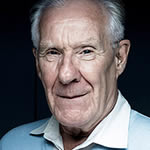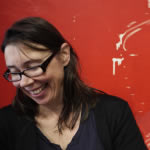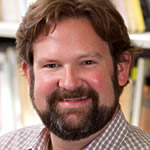
The Melbourne Badiou events are now concluded. Much thanks to all involved.
The MSCP is proud to host Alain Badiou during his Melbourne visit in November 2014.
Programme
Public Lecture: 'Considerations on the world situation'
(Doors open 6.15pm) 7pm Friday, 21 November. New Council Chambers, Trades Hall. (Map)
The Public Lecture is at capacity. We are no longer taking registrations.
Conference (Speakers Below)
(Doors open at 9am) 9.30am - 5pm, Saturday, 22 November. Copland Theatre, 198 Berkeley St ('The Spot'), Unimelb. (Map)
The MSCP presents a one-day conference on the work of Alain Badiou. The six invited speakers will address key aspects Badiou's extensive oeuvre, offering a range of critical insights into his philosophy. The day will conclude with a reply by Alain Badiou.
Fees: Unwaged: $40. Waged: $60. Lunch will be provided.
Master Class on Immanence of Truths
9am - 11.30am Monday, 24 November. Law Building on Pelham st, Room 0102.
The Masterclass is at capacity. We are no longer taking new applications.
The masterclass is free but only available to those currently engaged in tertiary-level research involving Badiou's works or a closely related discipline.
Badiou will also be appearing the following week in Auckland (Auckland event details) and UNSW, Sydney (UNSW event details).
Academic + Press Contact: Adam Bartlett ( This email address is being protected from spambots. You need JavaScript enabled to view it. )
Conference Speakers
 |
Alain Badiou Alain Badiou taught at the University of Paris VIII (Vincennes-Saint Denis), and was Chair of Philosophy at the École Normale Supérieure. He continues to teach a popular, yearly seminar at the Collège International de Philosophie in Paris. He is the author of over 20 books of philosophy, several novels and plays and a hyper-translation of Plato's Republic. His major philosophical works include Theory of the Subject (1982), Being and Event (1988) and Being and Event II: Logics of Worlds (2005). Being and Event III: The Immanence of Truths is forthcoming. |
 |
Dr Sigi Jottkandt (UNSW) Maths in the bedroom: Sex, the Signifier and the Smallest Whole Number Badiou famously claims that there is no One. In this paper, I take us behind the scenes to the site where the One (if there were such a thing) would emerge. In fact, as I show, there are multiple Ones, which Lacan itemizes in his seminar on the Logic of the Fantasy (Seminar 14). There may be no One, but this is not to say there is no smallest whole number. Bio Sigi Jöttkandt is a lecturer in the School of the Arts and Media in the Faculty of Arts and Social Sciences, UNSW. Dr Jöttkandt’s research interests are in 19th and 20th Century British and American Literature (especially Henry James and Vladimir Nabokov); Lacanian psychoanalysis; and contemporary French philosophy. |
 |
Dr Ali Alizadeh (Monash)
To Suture or Not to Suture: Poetry and Philosophy in the Thought of Alain Badiou The un-suturing of philosophy from literature has been a cornerstone of Alain Badiou’s thought, resulting in not only a unique philosophy of art – inaesthetics – but also one of the very few instances of thinking about art which does not perform a ‘literary theory’ and instead compels a poetics. But is there a re-suturing of literature and poetics in the work of the poets Badiou most admires, the paragons of the so-called Age of Poets? This presentation argues that Badiou’s philosophy of art is one of the most significant and dynamic contemplations on literature in recent times. It also proposes an expansion of exemplars of an artistic truth-process beyond the poet-philosophers central to Badiou’s writing. The presentation includes a performance of a poem written specifically as both a tribute to Badiou’s thought and an intervention in the ‘ancient quarrel’ between poets and philosophers. Bio Ali Alizadeh is Lecturer in Creative Writing and Literary Studies at Monash's School of Languages, Literatures, Cultures and Linguistics. His principal research interests are in poetry, contemporary literature, aesthetic theory and political writing. He is the author of, among other books, Transactions (UQP, 2013) and Evental (Vagabond, 2011) and is currently working on a book, with Justin Clemens, which considers contemporary Australian poetry from a perspective inspired by Alain Badiou and Walter Benjamin. |
 |
Dr Knox Peden (ANU) - Presenting in Absentia
Badiou's Concept of History In the interview ‘Beyond Formalization’, Badiou describes his enterprise as ‘one giant confrontation with the dialectic’. This remark buttresses a schema of interpretation that finds in Badiou’s early and late work a recasting of dialectical thought that contrasts with the regrettable abstraction of Being and Event and his writings in the 1990s. The worry is that a subject grounded in axiomatics rather than dialectics will be indifferent to the object and immune to the mediations that form the essential stuff of political practice as a historical phenomenon. The wager of this talk is that Badiou is in fact closest to history – which is to say: his vision of history is most incisive – when he is farthest from the dialectic. From the concern for phenomenal appearance in Logics of Worlds to the ‘reveil de l’histoire’ sketched in his most recent polemics, Badiou has progressively re-inscribed the subject in a variety of mediatory fields. This resurgence of dialectical maneuvers threatens to eclipse the signal innovation of Being and Event with regard to the subject and its relation to ‘historical situations’. Neither vector nor site nor totality, history in a truly objective view is inconsistent multiplicity, and the only consistency it manifests results from a subjective tenacity impervious to any alibi the dialectic might seek to supply. To use the language of his interlocutor Sylvain Lazarus, the difference between the ‘heterogeneous multiplicity, which denies singularity’ and the ‘homogenous multiplicity’ that sustains ‘historical modes of politics’ is a matter of thought, which is to say, a matter of subjects. Recusing the dialectic does not take Badiou’s philosophy away from history; it is what allows the former to finally discern the latter. The breadth and value of this vision beyond its descriptive purchase on militants in various fields of subjective engagement has yet to be adequately appreciated. Bio Knox Peden is an ARC Research Fellow in the School of Philosophy, Research School of Social Sciences, at the Australian National University. He is the author of Spinoza Contra Phenomenology: French Rationalism from Cavaillès to Deleuze (Stanford, 2014) and the co-editor, with Peter Hallward, of a two-volume work devoted to the Cahiers pour l’Analyse (Verso, 2012). Bloomsbury will publish his French Philosophy Today: A Historical Introduction in 2015. His work has also appeared in Modern Intellectual History, History & Theory, Radical Philosophy, History of European Ideas, and Continental Philosophy Review.
|
 |
Dr Louise Burchill (VCA)
"Woman"'s Adventures With/in the Universal In 2011 Badiou gave a conference in which, contrary to his core tenet of truths' trans-particularity, he was to rather startlingly proclaim that truth processes can no longer be considered as indifferent to sexual difference. This paper investigates the tensions in Badiou's conceptual apparatus that might have led him to this inflexion of his thesis of the neutrality of the universal by charting the adventures of "woman" with and in the universal over the course of Badiou's work. Bio Louise Burchill is a lecturer in the Centre for Ideas at VCA. Her main areas of research are contemporary French philosophy, feminist theory and space studies. The articles she has published in these fields explore subjects such as the 'feminine' in contemporary French philosophy (focusing on authors such as Deleuze, Derrida, Irigaray, Kristeva and Lyotard), the notion of 'space' in the work of Derrida and Deleuze, and the intersection of Derrida and cinema. She is the translator of Alain Badiou's Deleuze: The Clamor of Being, Second Manifesto for Philosophy and Philosophy and the Event (co-authored with Fabien Tarby). |
 |
Dr Jon Roffe (UniMelb)
Deleuze’s Badiou In a long footnote appended to a restatement of the main themes of Deleuze. The Clamor of Being, Alain Badiou notes the peculiarity of the text that Deleuze devotes to his work in What is Philosophy? Indeed, Badiou goes so far as to write that “I would be grateful to anyone who could clarify this textual fragment for me, and explain what relation it bears to Being and Event. This is a genuine invitation, wholly devoid of irony.” The aim of this paper is to take up this invitation. I will argue that the text is indeed enigmatic, as Badiou asserts, and moreover that it dramatically falsifies the main theses of Being and Event. At the same time, it is possible to reconstruct a critical assertion from Deleuze’s remarks that poses a fundamental question to the project pursued in Being and Event and Badiou’s work more generally, around the theme of philosophy’s conditionality. Bio Jon Roffe is the founding convenor of the MSCP. He of the author of Badiou's Deleuze. His work concerns twentieth century and contemporary French philosophy, and he has published on range of figures in this context, including Badiou, Deleuze, Merleau-Ponty and Meillassoux. |
 |
Dr Alex Ling (UWS)
An Inessential Art? Positioning Cinema in Alain Badiou’s Philosophy This paper considers Alain Badiou’s understanding of cinema itself – taken in the generic sense, as an art almost entirely defined by its relation to other arts (as well as non-art) – while at the same time drawing out some of the more interesting artistic and philosophical consequences of his position. Following a brief examination of Badiou’s ‘inaesthetic’ conception of art and its relation to truth and philosophy, I go on to unpack Badiou’s implicit understanding of cinema as an ‘inessential’ art by isolating two central complications film presents to his inaesthetic program, specifically surrounding the crucial concepts of ‘singularity’ and ‘immanence’. I then move on to discuss cinema’s peculiar position among the arts, before finally addressing a number of paradoxes Badiou’s understanding of cinema gives rise to, as well as some of the challenges it presents his philosophical system as a whole.
Bio Dr Alex Ling is Research Lecturer in Communication and Media Studies in the School of Humanities and Communication Arts. His principal research interests are in film theory and the intersections between art, science and philosophy, with especial focus on the work of Alain Badiou, Jacques Lacan, Jacques Rancière and Gilles Deleuze. He is the author of Badiou and Cinema (Edinburgh University Press, 2011) and Badiou Reframed (forthcoming from I.B. Tauris), and editor and translator (with A.J. Bartlett) of Mathematics of the Transcendental (Bloomsbury, 2014). |
